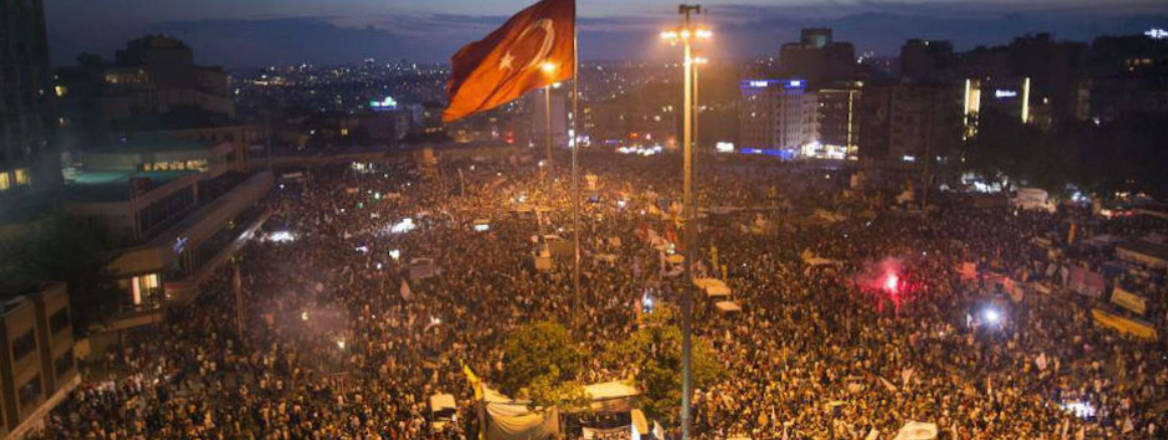The coup in Turkey failed because the plotters had no communications strategy and unclear political objectives. While another military coup seems unlikely, if President Erdogan wants to keep support internally and internationally he needs to restrict the retribution against the armed forces.
The most important caveat to any analysis of the Turkish coup is that there is not enough detail about the coup to make a reliable assessment of who initiated it, how it was planned and for what specific reasons. Also, it is unlikely that full and accurate details will be made available in the near future. Having survived the coup, President Erdogan’s government knows that its continued survival depends on constructing a narrative that places responsibility for the coup with an external aggressor to deflect from any suggestion that that it was in response to internal problems. Any assessment must therefore be based largely on external perspectives.
Operationally, the coup was reasonably well organised. The timing coincided with President Erdogan’s absence while on holiday. Key logistical hubs such as airports and bridges were captured early on. State-run media was shut down and attempts were made to restrict international media. However, there appeared to be little assessment or planning at the strategic level.
Most significantly, there was a failure to appreciate the strength of public opinion in favour of the democratic process, including the commitment to it by opposition parties. There was also a naïve and critical failure to appreciate the ubiquity and power of mobile communications, which enabled President Erdogan to speak to the nation using FaceTime via CNN. The coup leadership did not provide a compelling political narrative before or after the coup. In simple terms, the coup failed because it was primarily conceived as a military operation without an effective political and communications plan.
This failure to blend military action with political strategy and a communications plan is particularly striking. In March, the Turkish Army War College held an international conference on hybrid warfare, attended by over a thousand Turkish army officers, almost certainly including some of the coup leaders. The importance of shaping public opinion, co-ordinating political and military action and the critical importance of media narrative domination were clear and consistent messages at the conference.
The failure of this intervention could mean that this is the coup that ends coups in Turkey. Superficially, it might seem that the military is unlikely again to believe that power in Turkey can be gained by force. However, the existence of post-Ottoman Turkey is based on a special relationship between the state, the military and the people. Kemal Ataturk, founder of the nation, succeeded in the war of independence by mobilising the public in support of the military to create the modern state. Although directed by Ataturk to remain outside politics, the military believes it is the guardian of his secular legacy. Secularism in the imagination of some Kemalists goes beyond the US conception of separation of church and state to a strain that is almost anti-religious. This sets up a tension between the lay Muslim Turk and the military elite that has not been resolved.
How President Erdogan responds to his ‘victory’ over the military elements of the coup will determine whether the military permanently exits politics. Punishing the leadership while pardoning the largely conscript private soldiers could send out a signal that balances political authority with unifying benevolence. A wide-ranging purge involving the military, however, is likely to sow seeds of discontent that could encourage a future coup, should President Erdogan’s regime continue its current trajectory of oppression and power acquisition.
Whatever the truth of allegations that the coup was inspired by Fethullah Gulen, an exiled cleric living in the US, it is almost certain that the coup coagulated around a secretive network based loosely around common political beliefs. Otherwise, it is inconceivable that the military leadership and the intelligence services would not have detected a plot involving so many large units and personnel. As a response, it is likely that a restructuring of the Turkish army might be initiated with the introduction of an independent, inward-looking military intelligence service. A semi-independent elite regiment forming a presidential guard might also be considered. The end of conscription and the creation of a smaller, more professional and better-equipped military may be the most radical and effective reform open to the government.
These and any other changes are likely to add to the burdens of a military that is beginning to feel the strain of dealing with a complex counter-terrorism and counter-insurgency conflict involving the PKK (Kurdistan Workers’ Party) and Daesh. As a result, the military’s capability performance may drop during any period of change.
The coup will not affect Turkey’s membership of and role in NATO, unless there is a significant over-reaction by the government. It is also unlikely to greatly change the dynamics between Turkey and the coalition involved in Iraq and Syria against ISIS. The West needs a stable Turkey with an effective military to provide national and regional security. Western leaders will continue to urge President Erdogan to avoid over-reacting to the coup, but they can do little to build the political and military confidence and co-operation that form an increasingly important component of the hybrid nature of contemporary conflict. In particular, a military that had pride in its self-esteem, discipline and loyalty will need inspired leadership and radical reform to rebuild its effectiveness as a motivated force.

